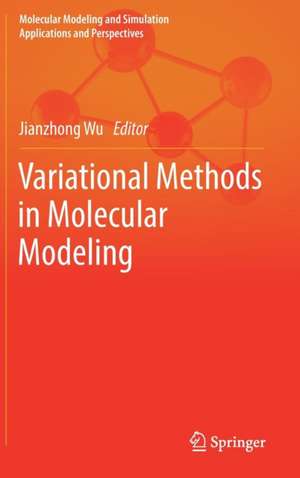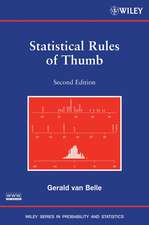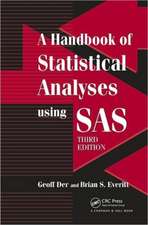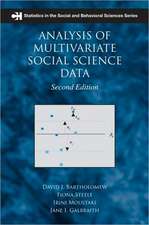Variational Methods in Molecular Modeling: Molecular Modeling and Simulation
Editat de Jianzhong Wuen Limba Engleză Hardback – 23 dec 2016
This book presents tutorial overviews for many applications of variational methods to molecular modeling. Topics discussed include the Gibbs-Bogoliubov-Feynman variational principle, square-gradient models, classical density functional theories, self-consistent-field theories, phase-field methods, Ginzburg-Landau and Helfrich-type phenomenological models, dynamical density functional theory, and variational Monte Carlo methods. Illustrative examples are given to facilitate understanding of the basic concepts and quantitative prediction of the properties and rich behavior of diverse many-body systems ranging from inhomogeneous fluids, electrolytes and ionic liquids in micropores, colloidal dispersions, liquid crystals, polymer blends, lipid membranes, microemulsions, magnetic materials and high-temperature superconductors.
All chapters are written by leading experts in the field and illustrated with tutorial examples for their practical applications to specific subjects. With emphasis placed on physical understanding rather than on rigorous mathematical derivations, the content is accessible to graduate students and researchers in the broad areas of materials science and engineering, chemistry, chemical and biomolecular engineering, applied mathematics, condensed-matter physics, without specific training in theoretical physics or calculus of variations.
| Toate formatele și edițiile | Preț | Express |
|---|---|---|
| Paperback (1) | 1000.87 lei 3-5 săpt. | |
| Springer Nature Singapore – 7 iul 2018 | 1000.87 lei 3-5 săpt. | |
| Hardback (1) | 1008.60 lei 6-8 săpt. | |
| Springer Nature Singapore – 23 dec 2016 | 1008.60 lei 6-8 săpt. |
Preț: 1008.60 lei
Preț vechi: 1230.00 lei
-18% Nou
Puncte Express: 1513
Preț estimativ în valută:
193.09€ • 201.47$ • 161.86£
193.09€ • 201.47$ • 161.86£
Carte tipărită la comandă
Livrare economică 13-27 martie
Preluare comenzi: 021 569.72.76
Specificații
ISBN-13: 9789811025006
ISBN-10: 9811025002
Pagini: 510
Ilustrații: XII, 324 p. 69 illus.
Dimensiuni: 155 x 235 x 21 mm
Greutate: 0.69 kg
Ediția:1st ed. 2017
Editura: Springer Nature Singapore
Colecția Springer
Seria Molecular Modeling and Simulation
Locul publicării:Singapore, Singapore
ISBN-10: 9811025002
Pagini: 510
Ilustrații: XII, 324 p. 69 illus.
Dimensiuni: 155 x 235 x 21 mm
Greutate: 0.69 kg
Ediția:1st ed. 2017
Editura: Springer Nature Singapore
Colecția Springer
Seria Molecular Modeling and Simulation
Locul publicării:Singapore, Singapore
Cuprins
Variational Methods in Statistical Thermodynamics – A Pedagogical Introduction.- Square-Gradient Models for Inhomogeneous Many-body Systems.- Classical Density Functional Theory for Molecular Systems.- Classical Density Functional Theory of Polymeric Fluids and Ionic Liquids.- Variational Perturbation Theory for Electrolyte Solutions.- Self-Consistent-Field Theory of Inhomogeneous Polymeric Systems.- Variational Methods for Biomolecular Modeling.- A Theoretician’s Approach to Nematic Liquid Crystals and Their Applications.- Dynamical Density Functional Theory for Brownian Dynamics of Colloidal Particles.- Introduction to the Variational Monte Carlo Method in Quantum Chemistry and Physics.
Notă biografică
Dr. Jianzhong Wu is a professor of Chemical Engineering and a cooperating faculty member of Mathematics Department at the University of California, Riverside. His research is focused on the development and application of statistical-mechanical methods, in particular density functional theory, for predicting the microscopic structure and physiochemical properties of confined fluids, soft materials and biological systems.
Textul de pe ultima copertă
This book presents tutorial overviews for many applications of variational methods to molecular modeling. Topics discussed include the Gibbs-Bogoliubov-Feynman variational principle, square-gradient models, classical density functional theories, self-consistent-field theories, phase-field methods, Ginzburg-Landau and Helfrich-type phenomenological models, dynamical density functional theory, and variational Monte Carlo methods. Illustrative examples are given to facilitate understanding of the basic concepts and quantitative prediction of the properties and rich behavior of diverse many-body systems ranging from inhomogeneous fluids, electrolytes and ionic liquids in micropores, colloidal dispersions, liquid crystals, polymer blends, lipid membranes, microemulsions, magnetic materials and high-temperature superconductors.
All chapters are written by leading experts in the field and illustrated with tutorial examples for their practical applications to specific subjects. With emphasis placed on physical understanding rather than on rigorous mathematical derivations, the content is accessible to graduate students and researchers in the broad areas of materials science and engineering, chemistry, chemical and biomolecular engineering, applied mathematics, condensed-matter physics, without specific training in theoretical physics or calculus of variations.
Caracteristici
Provides a unified approach to understanding and quantitative prediction of the properties and rich behavior of diverse many-body systems Offers a balanced mix of physical intuition, mathematical derivations and numerical analysis Illustrated with numerous pedagogical examples and real-world applications Presents valuable alternatives to time-consuming molecular simulations Includes supplementary material: sn.pub/extras













